It's a bit long for a one-liner, but this should work.
for f in /media/johann/5461-000B/DCIM/100MEDIA/*.AVI; do num=${f%.AVI}; num=${num##*IMAG}; ffmpeg -i "$f" -ss 00:00:00 -t 00:00:20 "~/Public/240321/240321_$num.avi"; rm "$f"; done
This num=${f%.AVI}; num=${num##*IMAG}; extracts the number from the video filename. To make sure it's not deleting anything it shouldn't, you also might want to run it with rm -i "$f"
Hey, I told you, you don't get your gun until you tell me your name.
It's insane.
The thermodynamic minimum amount of energy needed to extract CO2 at 450 ppm is 120 kWh per tonne. Current experimental carbon capture plants run at about 5 % efficiency. If we assume we can double their efficiency and can magically produce as many plants as we need, to remove 20 Gt of CO2 per year (half our emissions) we would need 24,000 TWh of energy per year.
That is the entirety of the world's electricity production. To remove half our emissions.
Carbon capture is a non-runner.
Hootie tootie disco cutie!
I don't know how this movie got made, but I'm glad it did.
My entire life has vim key bindings. My window manager and browser all have vim key bindings. I work in vim. I write my shopping lists in vim.
I really can't overstate how ingrained vim is in my day to day life. Bram had a big impact.
Bram Moolenaar Passed Away
Bram Moolenaar, creator of vim, has died.
If you are a vim user, consider donating to International Child Care Fund Holland - a charity Bram heavily supported. You can find the link on vim.org
:wq
It's called Title Case. There are different rules depending on which style manual you're using. Some people just capitalise everything. Some people don't use it at all.
His Global Warming in the Pipeline (pdf warning) paper is worrying. 10° C baked in, once you account for all feedbacks and he reckons Solar Radiation Management is our only chance - if it can be done without making things worse.
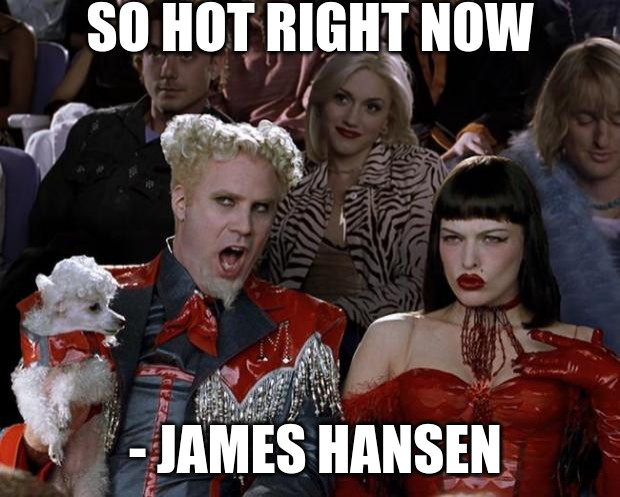
While the title of their article is correct, it's not exactly the full story. Human emissions as accounted for by the Global Carbon Project have leveled off but atmospheric CO2 and CH4 are still rising. (And in CH4's case, accelerating rapidly)
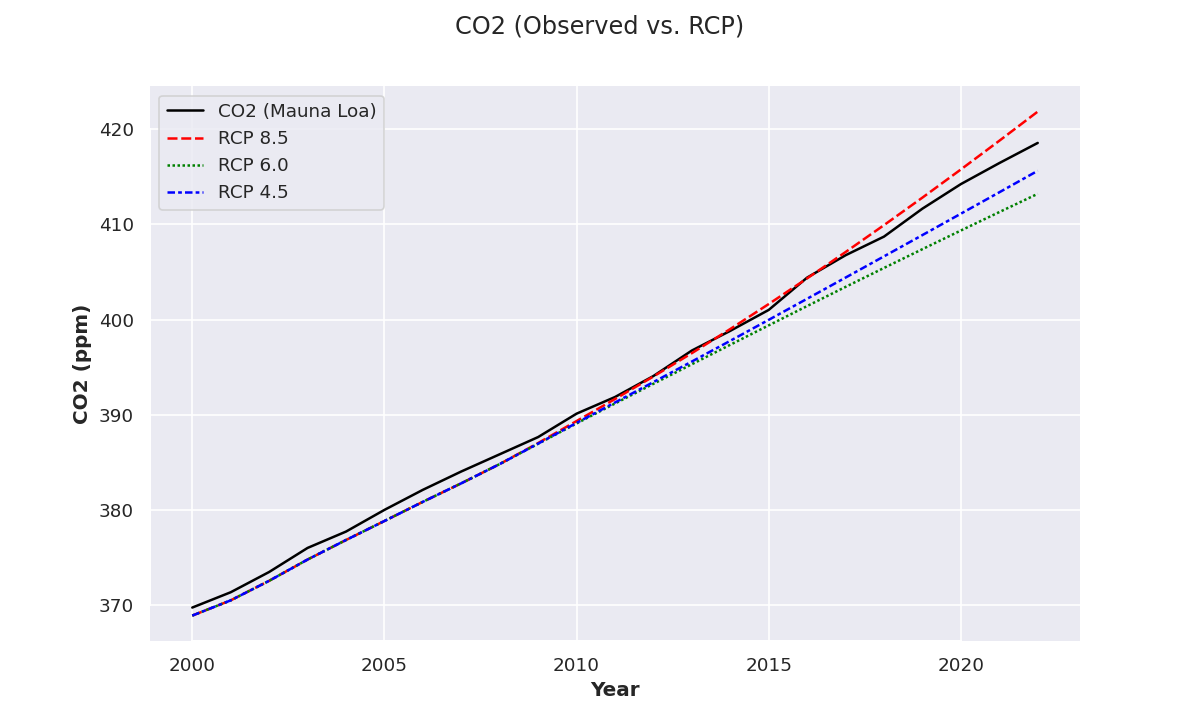
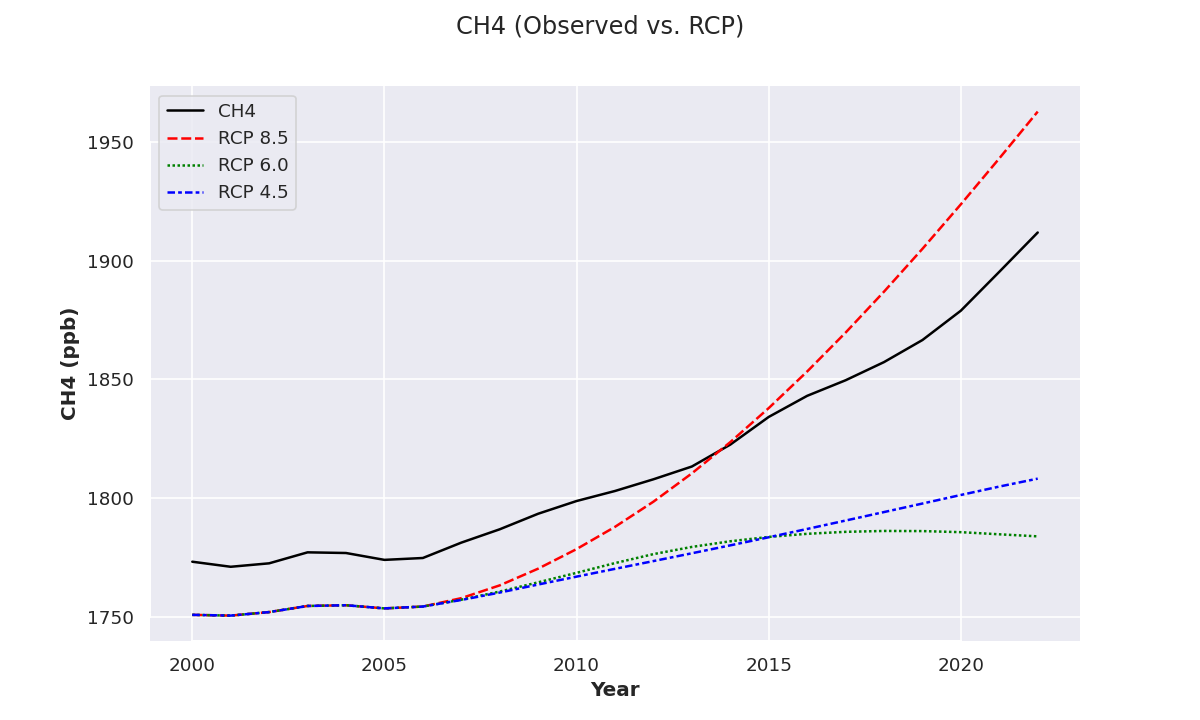
While the leveling off is a big improvement, we are a very, very long way from fixing this and feedbacks are kicking in that may well make it impossible.
And just for reference, here are the RCPs out to 2100:
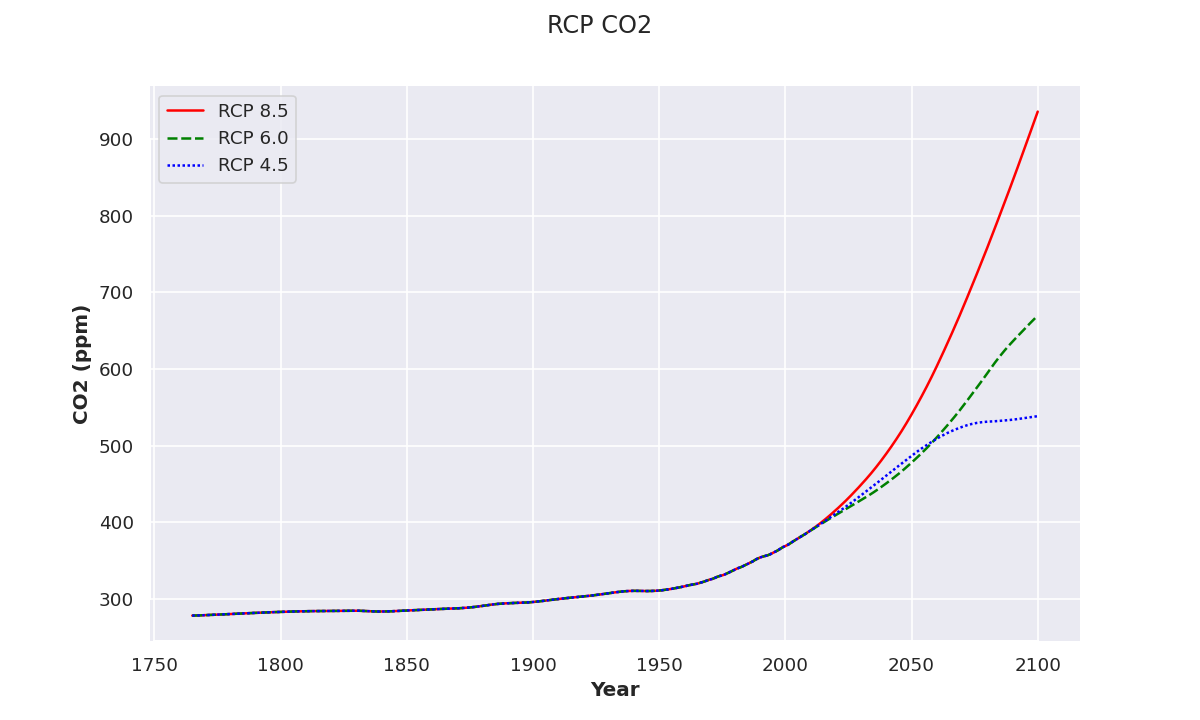
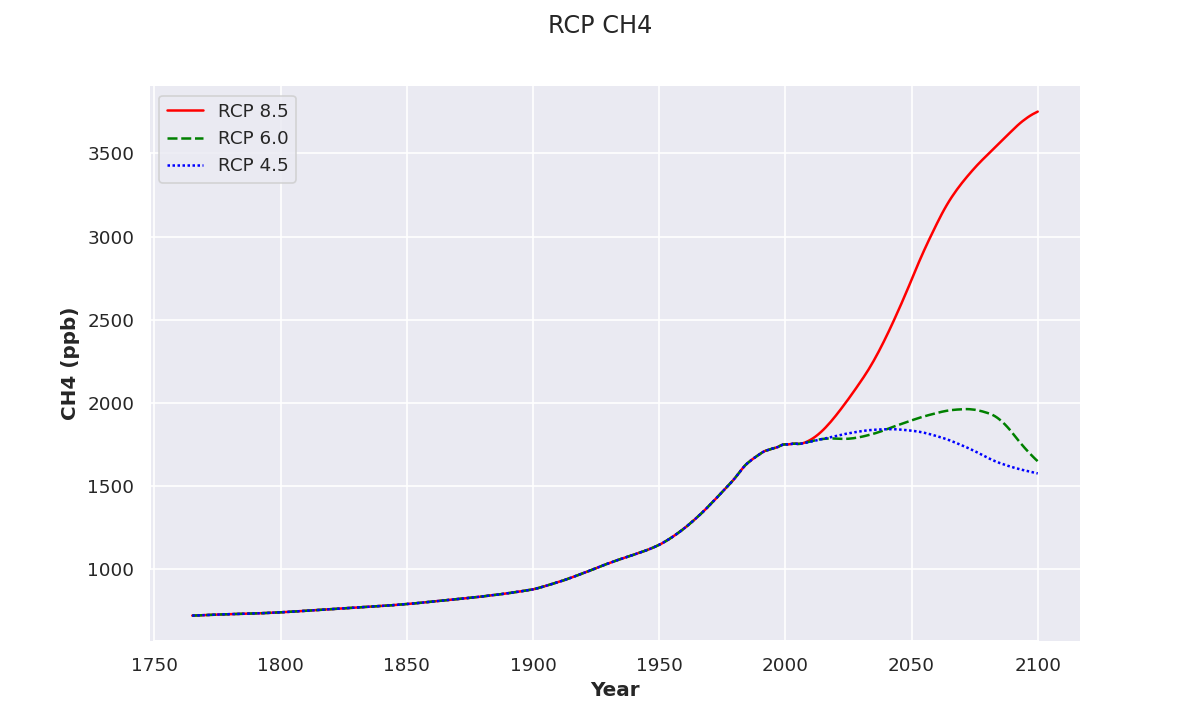
If you're interested, you can get RCPs here and observations from NOAA.
The monthly series doesn't quite capture what has been happening this year.
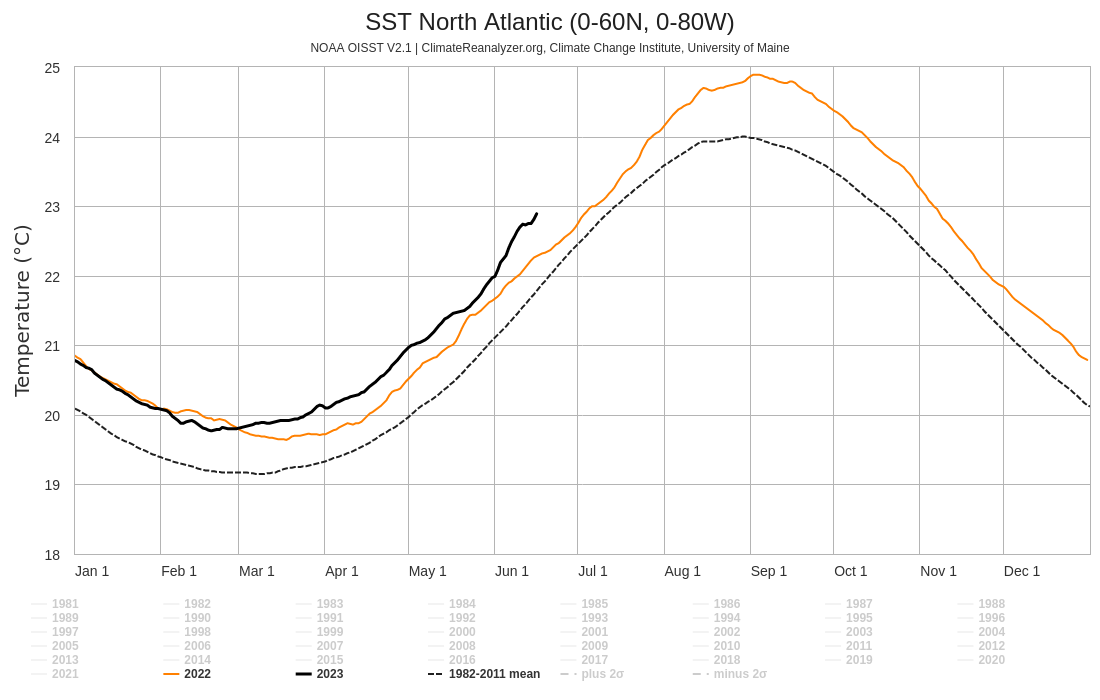
Since March of this year, the North Atlantic has been consistantly half a degree above last year and a full degree above the 1982-2011 average temperature. Temperature records have been broken every day since March.
We are in completely new territory now. Normally El Niño increases wind shear in the Atlantic, which makes hurricane formation more difficult. This increase in sea surface temperature may offset that. Things are going to be unpredictable.
Exactly. It's difficult to model something with so many moving parts. There are going to be a lot of problems we won't see until they hit us.
Increasing risks of crop failure in global breadbaskets
tl;dr: By 2050 global production of staple crops could fail every other year.
> Changes in the probability of a crop yield failure across the global breadbaskets of maize, wheat, rice, and soybean are projected throughout mid-century. Yield failure probability varies by global crop breadbasket with large differences in runs without and with CO2 fertilization (table 1). Without CO2 fertilization, the probability of a crop yield failure increases to at least 50% with the exception of wheat (42%) in any given year in 2041–2060. Presently, rice and maize failures are extremely unlikely. By mid-century, a rice or maize failure within global breadbaskets will occur at least every other year.
The "CO2 fertilization" mentioned here is increased plant growth due to higher CO2 levels and is theorized to potentially offset losses in wheat and rice.
But ...
Global greening from CO2 fertilization appears to have reversed around 20 years ago.
> Here we use multiple long-term satellite leaf area index (LAI) records to investigate vegetation growth trends from 1982 to 2018. We find that the widespread increase of growing-season integrated LAI (greening) since 1980s was reversed (p-value < 0.05) around the year 2000 over 90% of the global vegetated area, and continued in only 10% of the global vegetated area. The reversal of greening trend was largely explained by the inhibitive effects of excessive optimal temperature on photosynthesis in most of the tropics and low latitudes, and by increasing water limitation (increasing in atmospheric vapor pressure deficit and decreasing in soil water availability) in the northern high latitudes (>45°N).
The RedReader developer (QuantumBadger) said they'd like to make it a more general reader app and include support for RSS and Lemmy. It would take a while to to it though. They would have to abstract a lot of the Reddit specific code.
I hope they do it, it's a really nice app.


